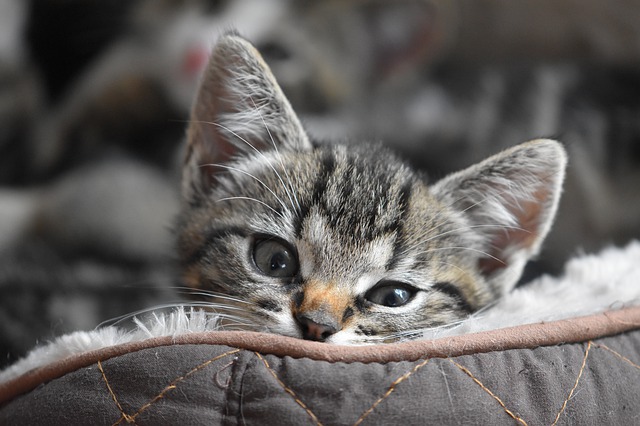The Alarming Health Risks of Raw Pet Diets: Tuberculosis in Cats
As discussions around raw pet diets persist, significant concerns regarding health risks to both pets and humans have emerged. Most commonly, attention is directed toward bacterial pathogens such as Salmonella, E. coli, and Listeria. However, a recent study published in the Journal of Feline Medicine and Surgery has introduced a more alarming pathogen: tuberculosis.
Understanding Tuberculosis and Mycobacteria
Tuberculosis, primarily caused by the bacterium Mycobacterium tuberculosis, predominantly affects humans and primates but can also infect dogs. Another strain, M. bovis, is typically found in cattle, elk, deer, and bison, yet it poses a risk to various animal species, including pets and humans.
Globally, tuberculosis remains a significant health issue, accounting for approximately 1.6 million deaths in 2017. Although less common in developed nations today, it was once a leading cause of mortality in the U.S., historically referred to as “consumption.” Notable figures such as Edgar Allan Poe and George Orwell succumbed to the disease, highlighting its severity.
Pathways of Transmission
Tuberculosis can be transmitted through contact with infected animals or humans or by consuming infected raw milk and meat. Fortunately, processes like pasteurization and cooking effectively eliminate these pathogens.
If detected early, tuberculosis can be treated with antibiotics; however, the rise of antibiotic-resistant strains complicates treatment efforts.
Recent Case Series Analysis from the UK
A troubling case series involving 13 cats in the UK has raised alarms about the connection between raw diets and tuberculosis. While prior reports detailed skin lesions in older cats that hunted wildlife, this recent report documents a severe instance among six young indoor cats from five different households.
These cats presented a range of systemic illnesses such as fever, decreased appetite, coughing, lethargy, increased respiratory rate, weight loss, and enlarged lymph nodes. Diagnostic testing confirmed all six cats were infected with M. bovis, and tragically, five of the six succumbed to the disease or were euthanized due to its severity.
Link to Raw Venison-Based Diets
Remarkably, seven other healthy housemates of the infected cats also tested positive for the bacteria, prompting an exhaustive investigation. The only common factor among the affected cats was their consumption of the same raw venison-based commercial pet food. This led to a recall of the product, though additional cases were still being detected at the time of the study’s publication.
The Broader Implications for Pet and Human Health
In an accompanying editorial, the authors reported a total of 45 clinical cases linked to this outbreak, along with 73 infected but asymptomatic cats. No human infections have been reported, yet the potential for zoonotic transmission remains a significant concern. The rationale for euthanizing at least one infected cat reflects the seriousness of the situation.
As this investigation unfolds, it becomes increasingly apparent that feeding raw animal products poses real-life health risks to both pets and their human companions. Understanding and mitigating these risks is essential for responsible pet ownership and public health.
Conclusion
The troubling association between raw diets and tuberculosis underscores a pressing need for vigilance among pet owners. Awareness of the health implications associated with raw feeding practices can play a crucial role in safeguarding the well-being of pets and their families.
For further reading, refer to the original research studies: O’Halloran C, Gunn-Moore D. Tuberculosis in UK cats associated with a commercial raw food diet. J Feline Med Surg 2019;21:665-666. & O’Halloran C, Ioannidi O, Reed N, et al. Tuberculosis due to Mycobacterium bovis in pet cats associated with feeding a commercial raw food diet. J Feline Med Surg 2019;21:667–681.











